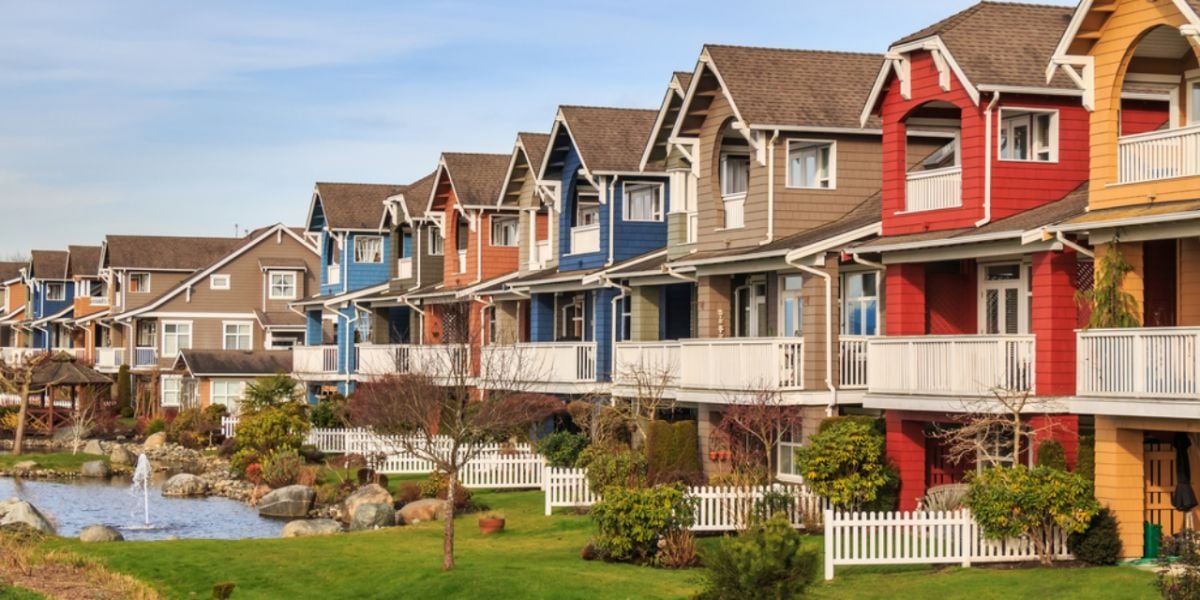
This article provides practical tips to assist you in adjusting to life in Canada and deciding on your housing options.
To start your quest for accommodation in Canada, it's essential to figure out the type of housing that suits you best. Explore whether purchasing a house or an apartment aligns with your preferences or if renting is a better fit for your profile. Typically, you can discover available houses and apartments through classified ads in local newspapers. Additionally, numerous websites provide services for rentals, sales, and shared accommodations.
Here are a few examples:
- geo.craigslist.org;
- www.remax.ca (sale);
- www.century21.ca (sale);
- www.rentboard.ca (renting);
- www.padmapper.com (renting);
- Facebook marketplace.
Renting accommodation in Canada
Generally, finding a place to live in Canada isn't too hard, as housing is available in most Canadian cities. Landlords may request proof of employment or conduct a credit check to ensure you're financially stable. Nevertheless, there are often understanding landlords, especially those accustomed to renting to newcomers. Keep in mind that upon arrival, you won't have a credit history in Canada. You'll need to open a Canadian bank account and settle a few bills, such as telephone bills, to start building your credit.
You don't need to secure accommodation before you leave. Consider booking a hotel room or renting a temporary apartment through platforms like Airbnb, giving yourself a week or two to find the perfect home. Another option is to go for a temporary sublet while you continue your search. Once you're on the ground, explore different neighborhoods in your city to discover the one that suits you best. Keep an eye out for "For Sale" and "For Rent" signs. The cost of renting property in Canada varies from one region to another, with larger cities generally being more expensive than smaller or medium-sized ones. Vancouver and Toronto are known to be the pricier cities, while Montreal, Edmonton, and Calgary offer slightly more affordable options. For a nationwide rent comparison as of September 2023, refer to the report published by rentals.ca.
In Canada, it's always preferable to sign a lease. The lease is a written legal commitment between you and the landlord. If you have a dispute later on, the lease agreement can make it easier to resolve. Make sure you've read and understood the contract before you sign it. Before agreeing to a rental, check what fees are included in the rent. You may also have to pay for electricity, Internet, hot water and heating. Make sure you know how long the rental will last. Rentals are usually for a year, but weekly and monthly rentals are also available.
If you decide to leave your apartment before the agreed-upon rental period is over, you will have to continue paying rent until the lease term concludes. However, your landlord might be open to the possibility of you assigning or subletting the property to a new tenant. Additionally, your landlord may request a security deposit, typically equivalent to one month's rent, to cover potential damages. It's important to note that demanding a security deposit is against the law in Quebec. To understand the specific regulations in the region where you've chosen to reside, get in touch with the provincial or territorial government.
Home insurance is not mandatory in Canada, although it is recommended. To choose one, you can contact your auto insurer or bank or search the Internet.
Good to know:
Be very careful if you book accommodation from abroad and are asked to pay one month in advance. Most advertisements with this requirement are scams.
Roommates in Canada
If you're on a budget, living with a roommate is a cost-effective choice, particularly in major cities such as Toronto, Vancouver, or Montreal. Sharing an apartment with others is a prevalent practice in Canada. Living in a shared apartment not only helps you save money but also facilitates quick connections with new people. Plus, in many cases, you won't have to worry about bringing your own furniture and kitchen utensils.
When checking classified ad sites for shared rooms, the listed price usually covers the room, furniture, utilities, and access to the rest of the house, including kitchen utensils. However, it's not a universal rule. Before making any commitments, make sure to clarify with the owner what exactly is included in the price.
In addition to searching the usual classified ad sites, don't hesitate to join Facebook groups dedicated to your city of residence and to new arrivals.
Terminology you need to know when renting in Canada
The following table lists the abbreviations commonly used in Canadian rental ads.
Abbreviation or Designation | Significance |
apt. | apartment |
avail. | available |
studio | one-room apartment with kitchen and bathroom |
br. | bedroom |
bsmt. | basement |
cable | cable television |
d-w | dishwasher |
furn | furnished accommodation |
h.w. tnk | hot water tank |
imm occ. | free immediately |
laund. | collective laundry |
lux. | luxurious |
refs | references required |
reno. | renovated |
loft | larger studio |
s.-loc. | for rent to someone who is already a tenant |
non-furn | non-furnished |
Incl util | heating and electricity included |
w/d | Washer and dryer |
1st and last. | The rent for the first and last month is required in advance |
n.h n.i | Not heated, not illuminated |
hydro | electricity |
sf | Basic appliances included (stove, refrigerator). |
t/h | town house |
n/p | no pets |
n/s | no smoking |
appl | appliances |
Inc utils | utilities included |
d/w | dryer and washer |
Notes on the designations of the units/apartments:
- A studio/loft: consists of a single room with a kitchenette and bathroom. In Quebec, this type of dwelling is commonly called a “1½” or a “2½” (the word “rooms” being implied);
- A one-bedroom apartment: includes living room, kitchen, and bathroom, plus one bedroom. In Quebec, this type of dwelling is commonly called a “3½” or “2 ½” with a closed bedroom".
- A two-bedroom apartment: includes a living room, kitchen, and bathroom, plus two bedrooms. In Quebec, this type of dwelling is commonly called a “4½”.
For the French lexicon corresponding to other housing types, you can consult this link on Kangalou, a Quebec real estate rental platform.
Buying a house or apartment in Canada
Once you've made the decision to purchase a home in Canada, it's crucial to establish a credit history. Canadian banks use this history to assess your eligibility for a bank loan. Note that obtaining a loan from a banking institution might be challenging if you're a temporary resident. For more information, you can visit the Financial Consumer Agency of Canada website.
When it comes to buying a house or apartment in Canada, we recommend reaching out to a real estate agent. You can find them in the yellow pages of your telephone book or online. Keep in mind that buying a house involves various expenses, including those related to the real estate agent, lawyer, or notary, and other costs associated with necessary work on the property.
Of course, you'll have to take into account annual property taxes, home insurance, registration fees, and the various taxes involved in buying a house, as well as maintenance, heating, electricity, hot water, and sewage costs. Running water is free in Canada.
In Canada, you can benefit from certain forms of financial assistance when buying a home. For more information, visit the Canadian Immigration Services website.
Good to know:
Effective January 1, 2023, the Non-Canadian Residential Real Estate Prohibition Act prevents non-Canadians from purchasing residential real estate in Canada for two years.
What to check before buying real estate in Canada
Before you buy or rent a home, it's crucial to ensure the safety of the premises. For instance, confirm that the windows are secure, there's a functioning smoke detector, and an emergency exit is in place in case of a fire. Verify that the appliances provided by the landlord are in good working condition and that the water systems are free from damage. Additionally, make sure the property is free from unwanted insects and rodents, with bedbugs being a particular concern in major Canadian cities. Don't hesitate to inquire about pest control measures during property visits. Finally, check that transportation is easily accessible and consider the safety of the neighborhood, especially at night.
Useful links:
Government of Canada - Banking
Canada Mortgage and Housing Corporation - Housing for newcomers
Canadian Real Estate Association
We do our best to provide accurate and up to date information. However, if you have noticed any inaccuracies in this article, please let us know in the comments section below.








